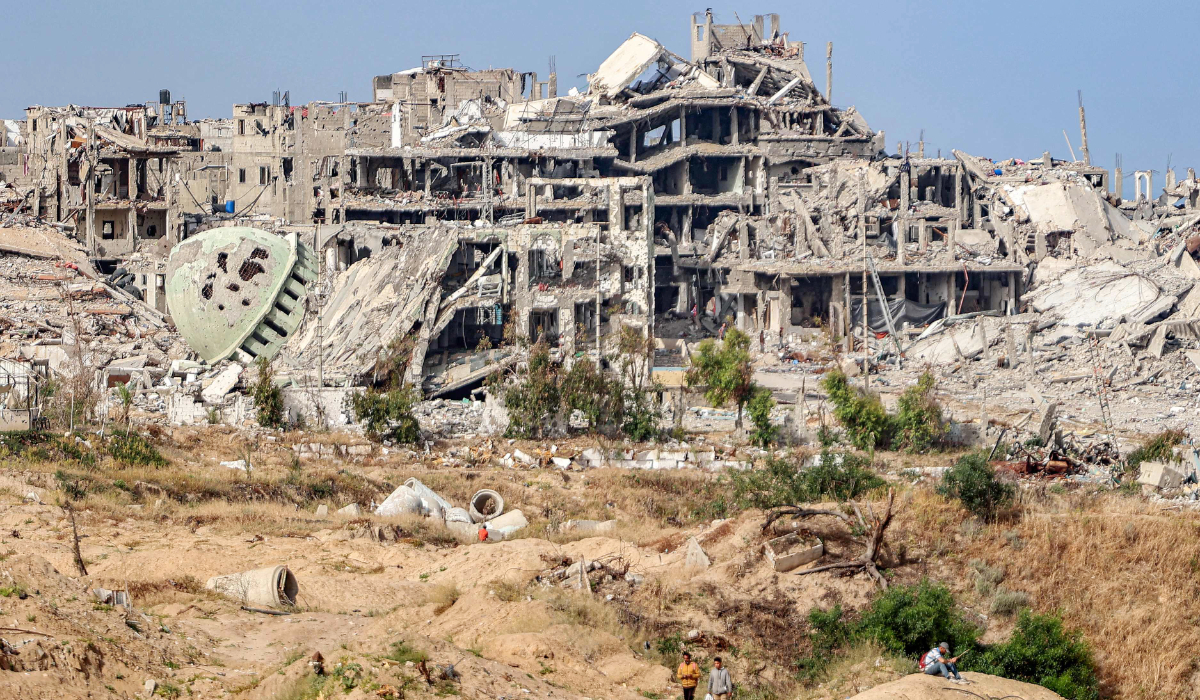RAFAH, Palestinian Territories: Under a ceaseless storm of strikes in Gaza, a baby girl has survived insurmountable odds as the only member of her family left alive after she was delivered by Caesarian section as her mother lay dying.
At just seven months pregnant, her mother, Sabreen Al-Sakani, reached the emergency unit in critical condition after she was fatally wounded in the head and abdomen at the weekend.
An Israeli air strike hit her family’s house in the east of the southern Gaza city of Rafah, witnesses told AFP.

A Palestinian baby girl, saved from the womb of her mother Sabreen Al-Sheikh (Al-Sakani), who was killed in an Israeli strike along with her husband Shokri and her daughter Malak, lies in an incubator at Al-Emirati hospital in Rafah in the southern Gaza Strip April 21, 2024. (REUTERS)
“It’s a miracle that she was still alive, despite her difficulties in breathing,” Sahib Al-Shams, a surgeon and director of the Kuwaiti hospital in Rafah, told AFP.
While examining Sakani, the hospital’s medical team realized she was pregnant.
They decided to go ahead with a C-section immediately, despite a lack of anaesthetics.
“The mother died 10 minutes later,” Shams said, adding that the baby’s father and sister had been declared dead on arrival at the hospital.
Hospital staff said the baby was in stable condition on Tuesday morning.

People wait before destroyed buildings in cleared area by the coastline for humanitarian aid packages to drop over the northern Gaza Strip on April 23, 2024 amid the ongoing conflict in the Palestinian territory between Israel and the militant group Hamas. (AFP)
At least 19 people died in the air strike on the Sakani family home, according to Gaza’s health ministry.
The newborn was transferred to the paediatrics unit of the Emirati hospital, a field hospital established in December in Rafah to cope with the besieged Palestinian territory’s mounting toll of injured and dead.
“We quickly put her in an incubator, put her on oxygen and treated her with antibiotics,” Haidar Abu Snimeh, an official at the Emirati hospital, told AFP.

Palestinians mourn over the bodies of relatives killed in Israeli bombardment, at the al-Najar hospital in Rafah, in the southern Gaza Strip, on April 21, 2024 amid the ongoing conflict between Israel and the Palestinian Islamist group Hamas. (AFP)
Rami Al-Sheikh, the baby’s uncle, will become the orphan’s caretaker upon her release from the hospital.
“Every day, I go to the hospital to check on my brother’s daughter who was rescued from her mother’s womb,” Sheikh told AFP.
“I named her ‘Sabreen Al-Ruh’ because her father wanted to name her Ruh,” he added, referring to the Arabic word for soul.
Several local media said the baby weighed less than two kilogrammes, and that her mother had been in her seventh month of pregnancy when she was born.
“The fact that this little girl was born alive despite the circumstances is nothing short of a great feat,” Abu Snimeh said.
He added that when a pregnant woman like Sakani struggles to breathe, the fetus lacks oxygen, which can hinder its development.
Palestinian journalists filmed the birth, footage of which was widely circulated Monday.
The war between Israel and Hamas erupted when the Palestinian Islamist group Hamas launched an unprecedented attack on Israel on October 7.
The attack resulted in the deaths of 1,170 Israelis and foreigners, according to an AFP tally based on official Israeli figures.
Israel vowed to eliminate Hamas, and its ensuing military offensive in Gaza has killed at least 34,183 people, most of them women and children, according to the health ministry in the Hamas-run territory.
More than 1.5 million of 2.4 million Gazans were estimated to have taken refuge in Rafah, in the far south on the border with Egypt, though thousands have since been seen heading back north.
A handful of similar births were reported in the coastal territory.
Makkah Abu Chamalah was born by post-mortem C-section on October 21, after his mother was critically wounded by an air strike on their home in Rafah.
The identification tag pinned to his incubator read “baby of the martyr Dareen Abu Chamalah.”
UN Human Rights Chief Volker Turk said on Tuesday, “The latest images of a premature child taken from the womb of her dying mother, of the adjacent two houses where 15 children and five women were killed — this is beyond warfare.”


























